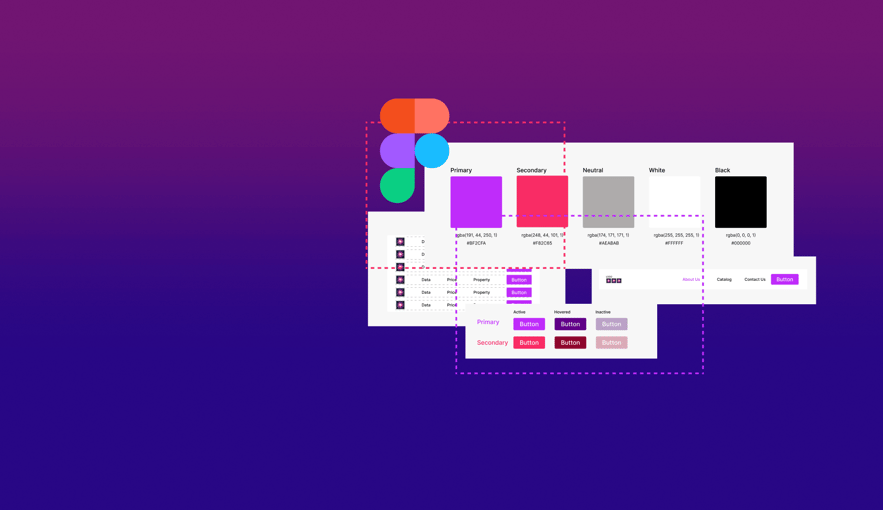Medical information related to one’s health condition is for many a highly important matter. Ensuring the privacy of this information is essential as many wouldn’t want to share their medical history with unauthorized third parties. At the same time, the privacy of medical information in public health systems is a human right and as such must be respected and accommodated. To ensure appropriate patient data security is the raison d’etre of the HIPAA certification system. This time, we'll take a closer look at what the HIPAA act is, what it's responsible for, and what the certification is based on.
Table of Contents:
1. Why is HIPAA certification important?
1.1. Who is bound by HIPAA laws?
1.2. HIPAA compliance vs. HIPAA certification.
1.3. How to ensure HIPAA compliance in healthcare software?
1.4. How to conduct software development based on the HIPAA standard?
2. RWM case study: a HIPAA compliant medtech application.
3. Are you in compliance with HIPAA? The HIPAA checklist.
Why is HIPAA certification important?
Health data is some of the most sensitive information a person has. At the same time, this data needs to be passed around between hospitals, private practices and other elements of the health system, and so the question of information security standards became part of national policymaking world-wide. The result is the HIPAA law outlined in the Health Insurance Portability and Accountability Act. This law ensures the secure storage and transfer of data between healthcare organizations. The HIPAA privacy regulations are the result of a joint effort by the Department of Health and Human Services (HHS). This legislation allows organizations to achieve compliance with privacy laws and at the same time reap full operational benefits of a modern data infrastructure. This has a direct impact on the quality of healthcare.
Who is bound by HIPAA laws?
Every healthcare organization and covered entity which handles medical records on a daily basis, as well as the business associates of these entities, must comply with the Act. The regulated group consists of representatives who handle patient information directly. This category mainly contains healthcare providers, healthcare plan providers and healthcare clearinghouses, it should be stressed though that responsibility trickles down to many entities that do regular business with them..
HIPAA compliance vs. HIPAA certification
While both terms come up quite often in the field of medical privacy practices, they are not the same. Compliance refers to adhering to the rules as determined by HIPAA in order to protect the health information of patients. Certification is a document acting as proof of a facility's compliance. HIPAA certification is granted only after employees have undergone appropriate training.

How to ensure HIPAA compliance in healthcare software?
First of all, not all systems used in healthcare need to adhere to the standards described. The first step is to familiarize yourself with the protected health information (PHI) regulations. Special protections apply to data such as patient and doctor names, phone numbers, and medical records. The HIPAA regulation should apply to medical software that has to do with data processing and data collection. Otherwise, there is no need to apply for certification.
To comply, the application must meet the following conditions:
- medical records should be secured against unauthorized access
- PHI cannot be edited or deleted by unauthorized users
- Must provide easy access to documentation for authorized users
- Should strive to cover all possible security risks
- Should provide data control through a convenient user interface.
Each security principle is also subject to regulation. These include The HIPAA Privacy Rule (2003), The HIPAA Security Rule, HITECH Act (2009). They are responsible for security in the day-to-day use of electronic PHI. Also, they set requirements for developers of medical applications.
How to conduct software development based on the HIPAA standard?
Health information systems covered by HIPAA are primarily commissioned by medical organizations. Such projects need a completely different approach than standard software development. Medical software should be adapted to regular audits. Electronic protected health information is exposed to various types of breaches. To prevent this, audits are performed from time to time to detect any irregularities. Software should include remediation plans. Such plans make it possible to correct any irregularities. At the same time, they are adjusted so that similar errors do not take place in the future.
The HIPAA privacy rule largely covers all issues related to documentation. Therefore, it is important to properly secure it at every level. In addition to security issues, it is important to remember about the medical organization’s business associates. These are the third parties who come into contact with elements of the sensitive PHI data handled by the application. These entities are also subject to liability for any HIPAA violation. In case of any irregularities, there is a HIPAA breach notification rule that governs them. This rule addresses the provision of notifications by all HIPAA covered entities when a breach of protected patient data is discovered.

RWM case study: a HIPAA compliant medtech application
Purpose of the cooperation
Railwaymen was engaged to create an online medical supply store from scratch. A client from the United States wanted to open a platform where people can buy prescription drugs. The solution of choice was a web-based application that would meet HIPAA compliance requirements. The challenge for both partners was to develop a functional system that would adequately protect patient health information.
Development
Our main task was to develop a platform that would fully guarantee data protection to users in the system. In order to protect personal data, we introduced several important improvements. One of them was making it mandatory for users to regularly change their passwords every 6 months. In addition, encryption played a big role and was introduced in several contexts. One was disk encryption so that if equipment was stolen, none of the personally identifiable health information would be accessible. All communication (even local communication) was also encrypted and handled via https. Sensitive data has been separated from general data. The only exception is access by persons assigned to the admin role. As part of the security elements, we have introduced roles and permissions for individual system administrators. We also limited access to the server so that it was assigned only to designated people. The final stage of the work was to carry out a comprehensive security audit to check whether the introduced solutions work in reality.
Outcomes
The result of our efforts was a functional medical platform offering sales of prescription medications. Users can determine the form of delivery of relevant prescriptions as part of the purchase process. Among other things, we used Amazon Cloud Services to increase user security and create HIPAA compliance software. Our work was carried out on the basis of HIPAA guidelines, which we strictly adhered to at every stage.
We consulted with the client on an ongoing basis to tailor appropriate tools. All this to ensure that his store provides a fast and comfortable shopping experience comparable to a stationary pharmacy. The described platform gives the possibility of contact with a doctor for users who do not have a prescription. We also noted that external components should be updated if a loophole is detected.
Are you in compliance with HIPAA? The HIPAA checklist
If you are in the process of developing software to comply with every HIPAA requirement, it is a good idea to use a special checklist. Here is an official list prepared by hipaajournal.com that indicates what to look out for.
- Clarify exactly which of the recommended annual audits are required of your organization.
- Perform the required audits and evaluations, analyze the results, and report any deficiencies.
- Propose remediation plans, put them into action, review annually, and make adjustments as needed.
- If the organization has not already done so, ensure that a HIPAA Compliance, Privacy and/or Security Officer is hired and assigned responsibilities.
- The designated HIPAA Compliance Officer should be responsible for conducting annual HIPAA training among employed staff.
- Ascertain that HIPAA training is documented and that staff members are able to attest to their knowledge of HIPAA policies.
- Assessment of BAAs and due diligence of business associates for HIPAA compliance.
- Reexamine the processes for how employees can report security breaches and how the HHS Office for Civil Rights is notified.
If you need help creating HIPAA-compliant software that provides your users with 100% security, then we encourage you to contact Railwaymen. Our specialists will provide you with the necessary assistance and solutions that will meet all your expectations. Fill out the contact form and share your needs with our specialists.


%20(1).jpg)



